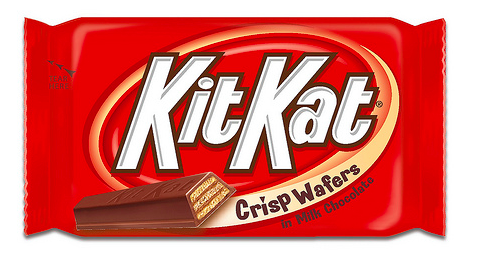Mandela Effect Internet Trend Proves Inaccurate

Photo Courtesy of Creative Commons.
Kit Kat candy bars are just one example of what people have linked to the Mandela Effect, as many believe it to previously be spelled “Kit-Kat”. However, upon research, many have found that this dash they remembered from their childhood did not exist. Could it be proof of irregularities in the space-time continuum?
November 4, 2016
Recently gaining some internet popularity through social media, the Mandela Effect has been changing how many people view otherwise trivial knowledge, but it should not be seen as anything more than superstition.
Despite only becoming popular online within the past few weeks, the Mandela Effect is a concept that has existed for over half a decade. The idea behind this conspiracy theory has been based around accounts of people sharing incorrect memories on common brands, titles and other everyday details.
According to a September 2016 Telegraph article, groups of people believing this theory started forming back in 2010, after paranormal enthusiast Fiona Broome discovered she was not the only person who falsely remembered the late Nelson Mandela passing away in the 1980’s, hence the phenomena being dubbed the Mandela Effect.
This part of the theory is not too difficult to comprehend, with many of the common examples seeming to be largely universal, like people believing Kit Kat candy bars are spelled “Kit-Kat,” or the title of the collection of children’s books, “The Berenstain Bears,” is spelled with a third ‘E’ in Berenstain instead of an ‘A.’ However, there are more parts to the story where the credibility quickly begins to falter.
Many theorists have tried linking the experiences of believers in the Mandela Effect to thoughts of potential multiverse concepts, as if the reason behind the false memories is a shift in the current universe. However, a psychological and less far-fetched reason found by many is that people are simply going along with the trend for the fun, seeing it as nothing more than entertainment.
The first idea is most likely incorrect is due to a lack in true scientific evidence, with nearly no sources containing anything related to the topic, and even fewer supporting it the cause. On the other hand, the latter possibility is supported largely by this generation’s love of internet conspiracy theories.
Without further evidence to back it up, the Mandela Effect is not much more than a complex tale gone popular thanks to social media.

